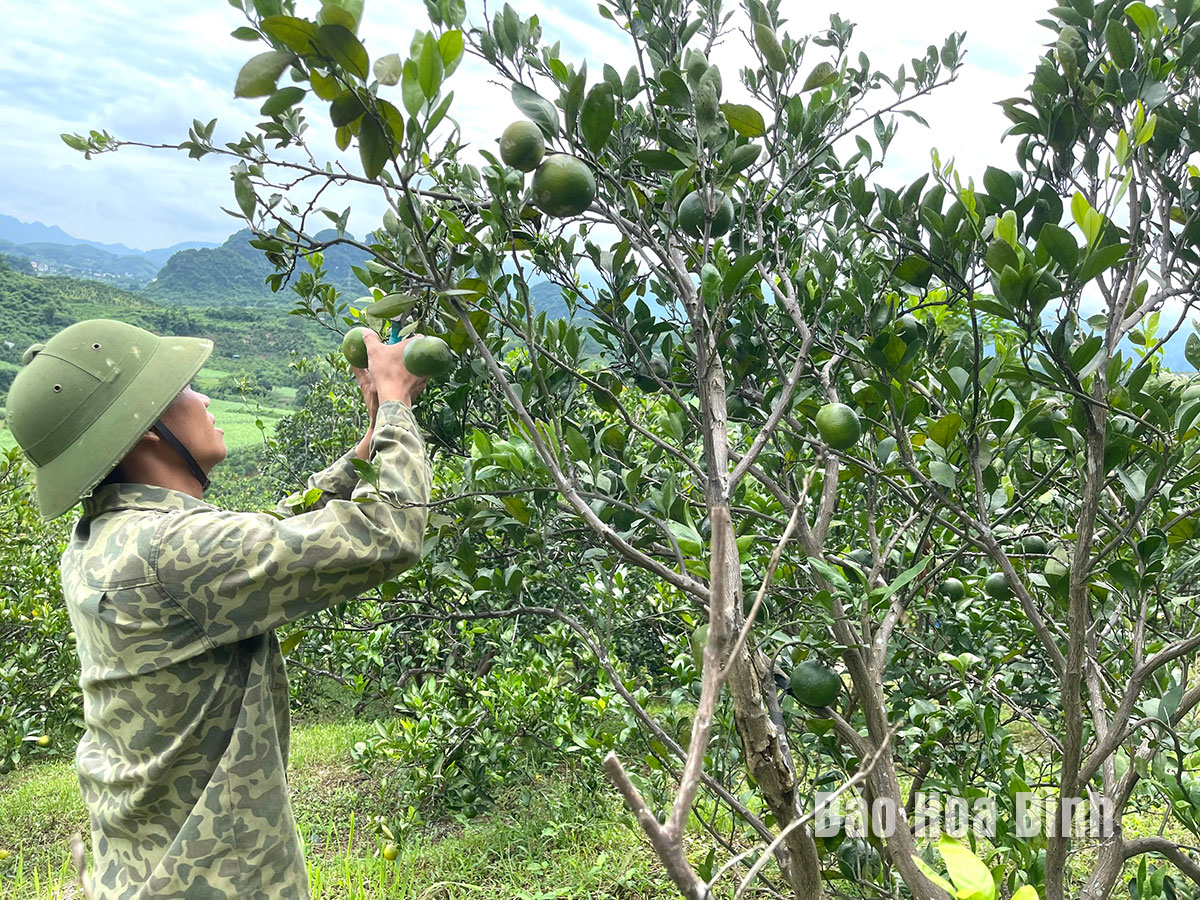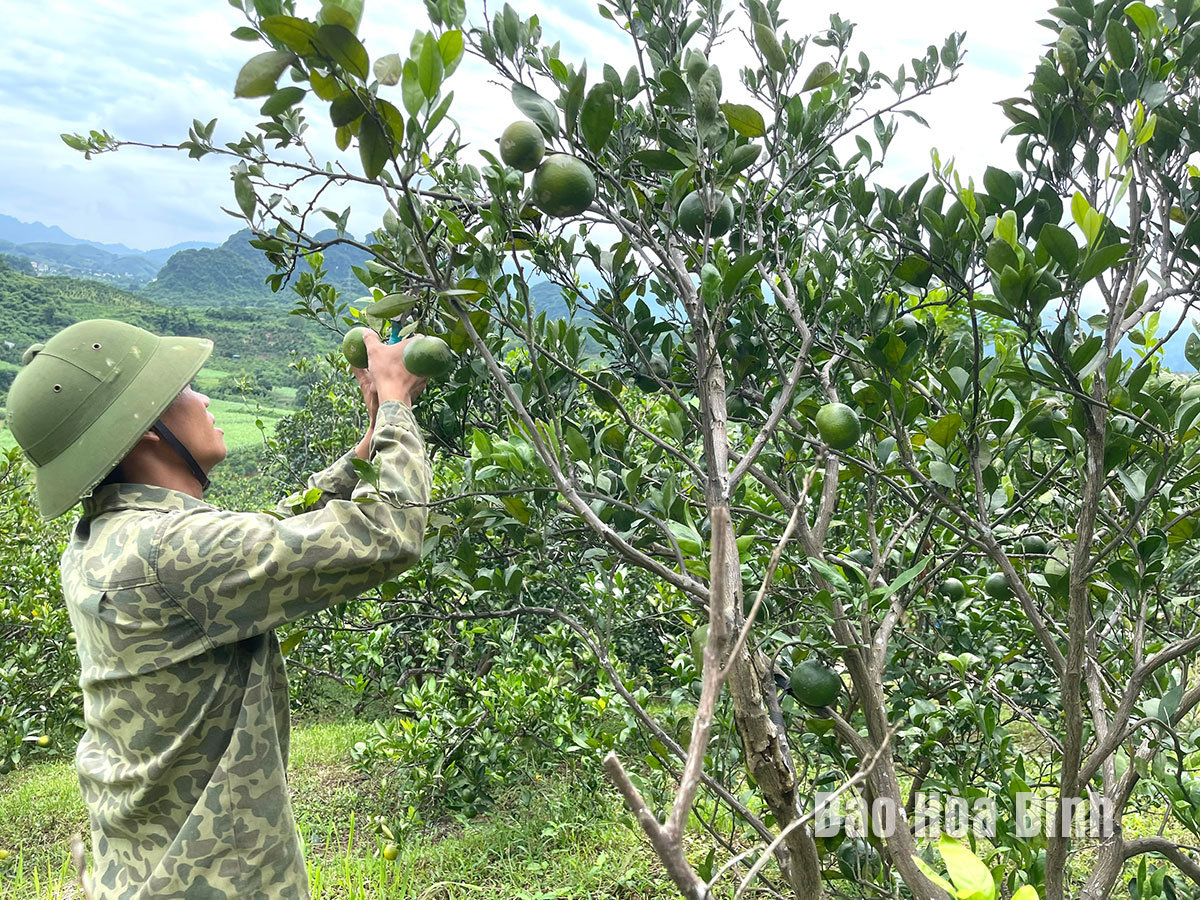
Farmers in Cao Phong district have been harvesting On Chau mandarins, marking the start of the citrus fruit season in the area.
The harvest began in late August, and this year’s crop is
reported to be bountiful with good quality fruit. Farmers are now busy picking
mandarins to meet increasing demand ahead of the Mid-Autumn Festival.
Ngoc Anh garden, located in Cao Phong town, has been selling mandarins since
August 25, with prices ranging from 20,000 VND (0.81 USD) to 25,000 (1 USD) per
kilogram. Thanks to the early harvest, many gardens avoided damage from Typhoon
Yagi.
On Chau mandarins are sold not only on local markets but also in other northern
localities like Hanoi, Ninh Binh, and Hai Phong. Orders are easily placed via
social media, and products are shipped to consumers through local
transportation services.
Cao Phong’s 3T Farm Cooperative has also begun harvesting its On Chau
mandarins, with no damage reported from the recent storm. The cooperative
follows VietGAP standards to ensure quality, leading to higher prices compared
to other local producers. Their mandarins are sorted, labeled, and packaged
carefully before delivering to customers, with the price up 5,000 USD per
kilogram compared to last year.
In local markets, On Chau mandarins have been available since late August, and
while the total planting area has decreased due to farmers replanting orange
trees, the demand for mandarins remains high. Prices range from 16,000 VND to
30,000 VND per kilogram, depending on size and quality. The harvest season of
On Chau mandarin is short, lasting about two months, with most farmers expected
to finish harvesting by the Mid-Autumn Festival.
Local authorities confirm that the crop has not been affected by the recent
typhoon, and the quality and prices of this year’s harvest remain stable.
According to data from the Hoa Binh Provincial Party Committee, the industrial production index for the first six months of 2025 is estimated to have increased by 20% compared to the same period last year. This marks the highest year-on-year growth rate for this period since 2020.
In the first six months of 2025, Hoa Binh province’s export turnover was estimated at 1.145 billion USD, marking an 18.11% increase compared to the same period in 2024. Import turnover was estimated at $ 804 million, a 17.15% increase, which helped the province maintain a positive trade balance.
The lives of the ethnic minority farmers in Tan Lac district have gradually improved thanks to the new directions in agricultural production. This is a testament to the collective strength fostered through the professional associations and groups implemented by various levels of the district’s Farmers’ Union.
With the motto the "product quality comes first,” after nearly one year of establishment and operation, Muong village’s Clean Food Agricultural and Commercial Cooperative, located in Cau Hamlet, Hung Son Commune (Kim Boi district), has launched reputable, high-quality agricultural products to the market that are well-received by consumers. The products such as Muong village’s pork sausage, salt-cured chicken, and salt-cured pork hocks have gradually carved out a place in the market and they are on the path to obtaining the OCOP certification.
In the past, the phrase "bumper harvest, rock-bottom prices" was a familiar refrain for Vietnamese farmers engaged in fragmented, small-scale agriculture. But today, a new spirit is emerging across rural areas of Hoa Binh province - one of collaboration, organisation, and collective economic models that provide a stable foundation for production.
Maintaining growing area codes and packing facility codes in accordance with regulations is a mandatory requirement for agricultural products to be eligible for export. Recently, the Department of Agriculture and Environment of Hoa Binh province has intensified technical supervision of designated farming areas and packing facilities to safeguard the "green passport" that enables its products to access international markets.



